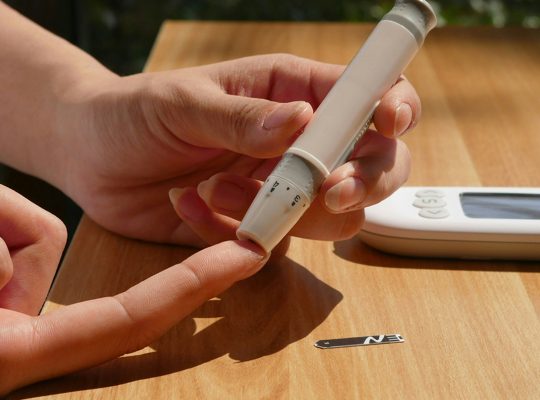With hearing problems, the question often arises: should I see an audiologist or an ENT doctor? Although both professionals work to improve your hearing, their roles, specializations and the type of help they provide differ significantly. To help you make the right choice, in this blog we explain the difference between an audiologist and an ENT doctor, and in what situations it’s best to consult whom.
What does an ENT doctor do?
An ENT physician is a medical specialist who focuses on the diagnosis and treatment of disorders of the throat, nose and ears (hence the name ENT). Within their area of practice is also hearing. An ENT doctor often treats medical or surgical problems that can cause hearing loss.
When do you see an ENT specialist?
- Sudden hearing loss: If you lose hearing in a short period of time, it is important to consult an ENT doctor immediately.
- Ear pain or infections: Recurrent ear infections, pain or a runny ear are often reasons to visit an ENT doctor.
- Medical problems: Hearing loss due to underlying conditions, such as a tumor, hearing damage from noise, or Ménière’s disease.
- Surgical treatments: The ENT doctor performs surgeries such as placing tubes, removing a tumor, or a cochlear implant.
Important to know: You usually need a referral from your primary care physician for an appointment with the ENT doctor. The ENT doctor focuses on medical causes of hearing problems and does not provide hearing aids.
What does an audiologist do?
An audiologist is a hearing specialist who focuses on testing hearing and fitting hearing solutions, such as hearing aids. Whereas the ENT doctor performs medical treatments, the audiologist focuses on improving quality of life by providing assistive devices.
When do you go to an audiologist?
- Hearing loss due to old age: If you notice that you are hearing less well, for example in company or during conversations.
- Mild to moderate hearing problems: A hearing care professional will help test your hearing and find an appropriate hearing solution.
- Hearing aid maintenance: An audiologist helps adjust, clean or repair hearing aids.
- Advice on hearing aids: In addition to hearing aids, you can also visit a hearing care professional for aids such as loop systems or hearing protection.
An audiologist is often the first point of contact for hearing loss and, if necessary, can refer you to the family doctor or ENT specialist if medical treatment is required.
The collaboration between ENT doctor and hearing care professional
Although an ENT doctor and an audiologist have different specialties, they often work together. With hearing problems, for example, the route may look like this:
- Start with the family doctor: If you suspect hearing loss, the first thing to do is to see your family doctor. He or she will assess whether you need to see an ENT doctor immediately or can first have a hearing test done at an audiologist.
- Hearing test at a hearing care professional: A hearing care professional performs a comprehensive hearing test and gives advice on hearing aids. If the test shows medical peculiarities, the audicien refers you back to the family doctor or directly to the ENT doctor.
- Treatment by the ENT doctor: If the cause of your hearing loss is medical, such as from a disease or infection, the ENT doctor treats you first. If assistive devices are needed, the ENT doctor may refer you back to an audiologist.
- Hearing aids through the audiologist: After medical problems have been ruled out or treated, the audiologist provides fitting of hearing aids and further support.
Should I see an audiologist or ENT specialist?
Here are some situations that can help you determine who to go to:
| Situation | ENT doctor | Audiologist |
|---|---|---|
| Sudden hearing loss | ✅ | ❌ |
| Longer-standing hearing problems | ❌ | ✅ |
| Ear pain, ear infections or dizziness | ✅ | ❌ |
| Need for hearing aids | ❌ | ✅ |
| Hearing test and advice on assistive devices | ❌ | ✅ |
| Maintenance and adjustment of hearing aids | ❌ | ✅ |
| Hearing loss due to noise or old age | ❌ | ✅ |
| Surgical treatment | ✅ | ❌ |
Why is an audiologist so important?
A hearing specialist is not only a hearing specialist, but also a partner in your everyday hearing solutions. Using a hearing aid goes beyond a medical solution; it improves your quality of life. A hearing care professional helps you with:
- Custom hearing solutions: No two ears are the same. A hearing care professional will provide a perfectly tuned hearing aid that fits your hearing loss and needs.
- Long-term support: From adjusting settings to periodic checkups, an audiologist is always there for you.
- Innovations: Audiologists are up-to-date on the latest technologies, such as Bluetooth hearing aids and apps to manage your hearing.
Why not go directly to an ENT doctor?
Although an ENT doctor is a medical specialist, it is often not necessary to go there directly. Most hearing problems, such as age-related hearing loss, can be treated excellently by an audiologist. Only if there are medical complications, such as ear infections or sudden hearing loss, is a visit to the doctor necessary.
In addition, it is advisable to first have a hearing test done at an audiologist, as they can immediately assess whether referral to an ENT doctor is necessary.
Tips for choosing the right help
- Start with a hearing test: If you have any doubts about your hearing, first have a hearing test done at a hearing specialist. This is often free and gives a good idea of your hearing loss.
- Consult with your doctor: If you have medical complaints, such as pain or dizziness, discuss this with your doctor. He or she may refer you to an ENT specialist.
- Choose a reliable audiologist: Find an audiologist with experience, good service and a wide range of hearing solutions.
Conclusion
The difference between an ENT doctor and an audiologist is primarily in their focus. A doctor treats medical causes of hearing loss, while an audiologist focuses on hearing tests and providing hearing solutions. In many cases, an audiologist is the first point of contact and offers immediate help with hearing loss.
Do you have questions about your hearing or would you like a free hearing test? Contact us and we’ll be happy to help. Good hearing care starts with a knowledgeable hearing care professional who understands your needs!








